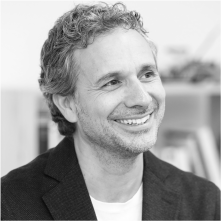

As we approach CHARGE Europe (23-24 October), we’ve been asking our top speakers and partners to reveal their approach to branding in energy. In this article, we speak to Julien Tchernia, CEO and Co-founder, Ekwateur
What impact does ESG have on brand identity now, and how important will it be in the future?
ESG plays an important role in companies today. Taking ESG into account is becoming compulsory and concerns several issues. Today, all companies are concerned with ESG criteria or are developing a strategy to do so.
Firstly, customers are increasingly asking about the values of the brands they buy products or services from, so this is a selling point. ESG is an opportunity for some companies to promote themselves (or for others to avoid through name & shame). Even companies that are not particularly known for their commitment are forced to do so, as in the case of Total’s recent communications. At Ekwateur, we know that many of our customers are attracted by what we stand for (renewable energy, sustainability, transparency, etc.), so price becomes a secondary criteria.
ESG criteria will also have an impact on the employer brand. A corporate identity that lets ESG issues shine through is more likely to attract and retain staff.
For all of these reasons, we need to embody the values we are communicating; ESG criteria and values become pillars of the brand’s identity, and if there is any dissonance between the two, it always comes out in the end. Greenwashing, for example, always shows. Fortunately, there are ways of ensuring that societal issues are taken into account: here in France, we have the status of a company with a mission, or the B Corp label, for example.
Finally, we need to talk about a new type of company that is emerging ‘impact by design’. Like Ekwateur, these companies have a business model aligned with the response to a social issue.
How is your company responding to rising user expectations and aligning them with your ESG strategy?
We are ‘impact by design’, we were founded on environmental awareness! With our business model, we are responding to a societal issue: the fight against climate change. Our business model enables us to promote energy savings and encourage 100% renewable, low-carbon energy. To ensure that we stay on course, we have adopted the status of a company with a mission. And we are aware that we always need to go further, which we can do thanks to the labels we are proud to have or the ecosystems of impact companies of which we are a part. It all adds up to an exchange of best practice!
One of the special things about Ekwateur is that we don’t have a CSR or ESG department – anyone can submit ideas. We’ve set up several referent persons: CSR, LGBTQ+, disability, etc. And if someone wants to put forward an idea that is good for the planet or for people, we will support them. Employees often come because of our company’s values, which means that we are immersed in an atmosphere where impact is at the heart of questions and decisions.
What is the general perception of the brand within your business versus how it was a few years ago? How has it changed, and what are your hopes for your brand in the next few years?
Energy suppliers, particularly alternative suppliers, have a bad reputation in France because of a poor perception of the business and a lack of knowledge of the sector. Yet they have changed the energy landscape (by offering 100% renewable energy, fixed prices over long periods, additional services, etc).
In the future, I see Ekwateur as a supplier of renewable energy, but also as a partner in the energy transition, with many other products and support services: self-consumption, an app to manage your consumption, etc.

